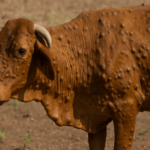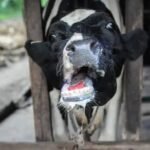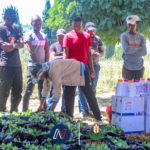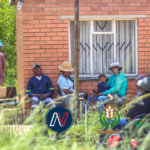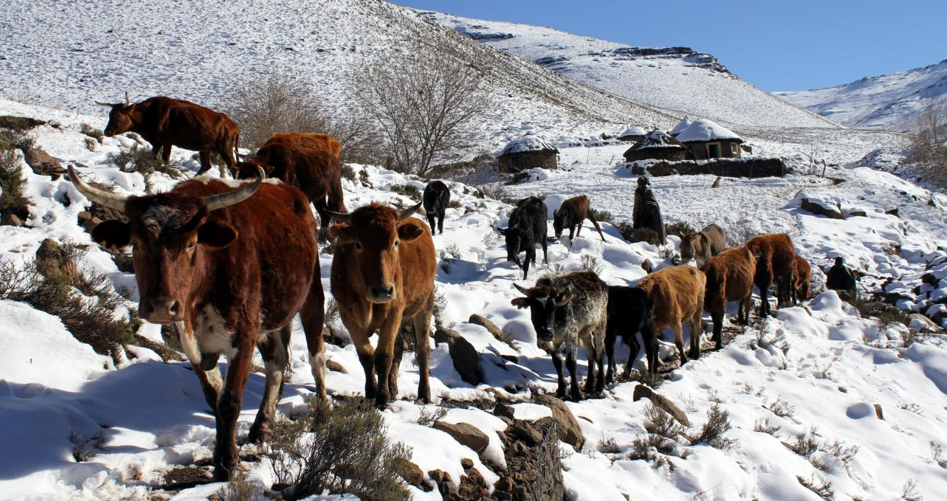…at least 4000 are receiving numeracy and literacy education
They rise before dawn and sleep beneath stars, guarding Lesotho’s wealth on footpaths that crisscross the highlands. Herd boys, the unsung backbone of the country’s livestock sector, play a critical role in the national economy. Yet, they remain locked out of labour protections, forgotten by policy and burdened by a legacy of neglect.
Despite their vital contribution, herders often work without contracts, compensation or recognition.
Systemic isolation, illiteracy and lack of legal frameworks make them one of the country’s most vulnerable labour groups.
“There is a common practice where employers avoid paying wages and instead promise an animal at the end of the year as compensation for the work done, but when that time comes, they always have excuses. The animal never comes,” says Retšelisitsoe Ntsamo, a former herd boy, now aged 32.
“You walk away empty-handed after a year of service, and we wonder why many boys escape to South African farms and security companies; they do so seeking dignity they don’t get when working in the country,” Ntsamo narrates.
Childhood Lost to the Mountains
While herding livestock is traditionally seen as a rite of passage in Lesotho, and many elders reflect on their journeys through ragged mountains and harsh weather conditions, it has become a trap for too many young boys.
According to the Lesotho Association of Non-Formal Education (LANFE), children as young as nine are being pulled out of school to herd animals and work in conditions that do not even meet global employment standards.
“We have recorded high numbers of child herders, particularly in the Mokhotlong district,” LANFE Executive Director, Tšepang Matsietsa, reveals.
“Our 2024 internal assessment revealed that over 4,000 boys between ages 9 and 17 are attending LANFE-coordinated numeracy and literacy classes in different rural areas across the country. This is evidence of a strong overlap between herding and early school dropout.”
Matsietsa revealed that many of the boys leave school for reasons that may seem irrational.
“Some are drawn by the gifts given to herders by different NGOs, such as new gumboots or blankets, while others aspire to own their fleet of livestock. Others are fleeing from school punishment. It is not just poverty that drives the boys to herding,” Matsietsa says.
He adds, “It’s a combination of peer influence, cultural pride and at times coercion by adults, including cases of child labour trafficking by parents.”
To reach the boys, Matsietsa says LANFE runs late evening numeracy and literacy classes from 8:00 PM to 10:00 PM tailored to herders’ availability.
“While these efforts offer hope, progress is slow in most districts except Mokhotlong, which is performing exceptionally well,” Matsietsa says, noting systemic neglect remains the norm, hindering any potential progress.
A Cry for Protection and Recognition
Founded in 2019, the Monna Ka Khomo Association, also known as the Lesotho Herdsmen Association, has been lobbying for herders’ rights.
Based in Thaba-Tseka, with operations in Mokhotlong and Qacha’s Nek, the association advocates for labour protections, formal recognition and decent working conditions, fair compensation and recognition under the labour law for herd boys across the country.
“We established Monna Ka Khomo to give herders a voice,” Chairman Motlalentoa Hlahlisi explains.
He adds, “We are pushing for humane treatment, fair wages and legal agreements that will acknowledge herders for their role in the chain of Lesotho’s economy.”
In 2023, the association drafted a proposed employment contract to be signed by the chief, the employer and the employee, a document they had hoped would be adopted countrywide when an employment of a herder is happening.
“The contract included a commitment from the chief to prevent child labour, a clause for fair wages, and age verification of the worker,” Hlahlisi describes; however, to their shock, the Ministry of Labour and Employment rejected the proposal, saying they don’t have stationery to print and distribute it nationwide.
“We couldn’t believe it. The excuse was ‘no paper,’ yet this was a real step toward ending the exploitation of young boys and protecting those of age from harsh working conditions,” says Hlahlisi.
Informality Breeds Abuse
Lesotho’s Labour Code Order No. 24 of 1992 grants all workers’ rights to contracts, fair wages, and rest. But in practice, herders remain excluded.
There is no national wage scale for herders, no inspections and little recourse for abuse.
“My first employer promised me sheep as payment. He never followed through. I thought if I worked harder, he would change his mind. But the year ended, and so did my hope,” recounts Ntsamo.
Lekhiba Kolisang, deputy chairperson of the Liqaleng Herder Grazing Association, on the other hand, confirms that wage disputes and emotional abuse are common norms within the livestock operations chain.
“Employers often renege on agreements claiming the herder made a mistake that voids the deal,” he narrates.
“This destroys the morale of the herders. Under these inhumane treatments and due to the nature of the expected working arrangements, many herders go months without decent food, clothing or shelter, topped with working that hard at no pay.”
Though his community has no reported child labour cases, Kolisang stresses the poor living conditions faced by herders, including a lack of hygiene, no toiletries, and unequal access to food.
“They eat at the employer’s house, but their meals are different from those of the families. It’s subtle discrimination that cuts deep,” he says.
Dehumanised and Isolated
Poor hygiene has become a source of public shame and ridicule, further isolating herders from the rest.
“It’s not that they choose to be dirty. They are not paid enough to maintain basic hygiene. The public mocks them instead of questioning the system,” Hlahlisi notes.
According to Monna ka Khomo, herders are not included in the official wage bill. The Ministry verbally classifies them as domestic workers, but this has no legal bearing.
“Why are herders not formally included under the wage bill like factory or domestic workers?” Hlahlisi asks.
“Until we fix that, nothing will change,” he charges
The social isolation of herders is also profound. Many live alone in remote cattle posts for months, sometimes years.
“I once asked a young herder how he was doing emotionally. He said he didn’t know life had joy; he had never felt it. My heart broke,” Matsietsa recounts.
This lack of socialisation can have long-term impacts.
Ntsamo points to behavioural challenges, including instances of sexual violence that stem from social disconnection.
“These boys grow up without learning how to relate to others. They need structured social programs, rest days and emotional support.”
Hlahlisi agrees, “…herders are seen as criminals. Communities don’t want to see them gathering together, medical staff at health facilities refuse to treat them properly due to hygiene issues, and because their diets are poor and unbalanced, their mental and physical health deteriorates, making them look frail.”
A Call for Action
LANFE and Monna Ka Khomo are calling for a comprehensive national strategy to uplift herders.
They propose the inclusion of herders in the national wage bill, formalisation of employment contracts for herders, registering herders in a national database, strengthening inspection and enforcement, as well as investing in tailored education and mental health support.
In 2023, the Ministry of Labour acknowledged herders’ exclusion and promised to include them under the National Social Protection Strategy, but implementation remains stalled by budget constraints and geographical challenges.
“Until herders are included in national policy and public consciousness, Lesotho will continue to thrive on invisible labour that is highly brutalised and exploited. These boys deserve more than survival; they deserve recognised and respected dignity,” Hlahlisi emphasises.

